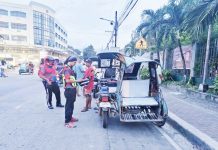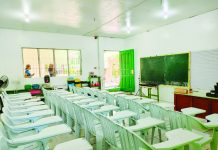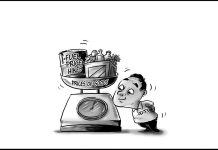
IBON FOUNDATION, a local think tank, is questioning the data presented by President Ferdinand “Bongbong” Marcos Jr. in his State of the Nation Address (SONA) on July 22, 2024.
PBBM reported that the poverty incidence in our country fell from 18.1 percent in 2021 before he assumed office, to 15. 5 percent in 2023, implying that it went down because of his executive actions.
However, the foundation appears to be questioning the basis for the President’s report, seemingly hinting that it was dishonest.
Eventually, the foundation somehow explained that they have no reason to doubt the poverty numbers that were submitted to PBBM by the Philippine Statistics Authority (PSA), but they clarified what they really meant, by saying that what the PSA data really says is that “the number of Filipinos reported as poor has fallen”. They then added that their statement is not the same as saying that “there are now fewer poor Filipinos”.
If you could not fathom the complexity of that explanation, imagine how the rest of the population could understand it.
When I was younger, I heard the story about Juan who got mad at his friend Pedro, because according to Juan, his friend said that he looked like a monkey.
In order to appease Juan, his friend Pedro explained that he did not really mean to say that Juan looked like a monkey.
Pedro explained that what he really meant to say is that the monkey looked like Juan.
With that explanation, Juan was no longer mad at Pedro.
In his Inquirer article that touched on this subject, content research writer Kurt De La Peña wrote that “as the think tank said, the government’s poverty threshold is too low, stressing that the monthly poverty threshold for a household with five members is lower than the national median self-rated threshold stated by respondents in the Social Weather Stations poll on poverty.”
I do not know how this debate will end, but what I want to know is what method was used by the PSA to measure the poverty incidence.
Was it the traditional method of counting the number of households who could not afford to purchase what is in the “imaginary basket of goods”?
Or was it the newer method of the “Multidimensional Poverty Index” (MPI) that was developed by the United Nations to measure depravity of basic goods and services?
Whatever that method was, it should have been mentioned in the SONA./PN







